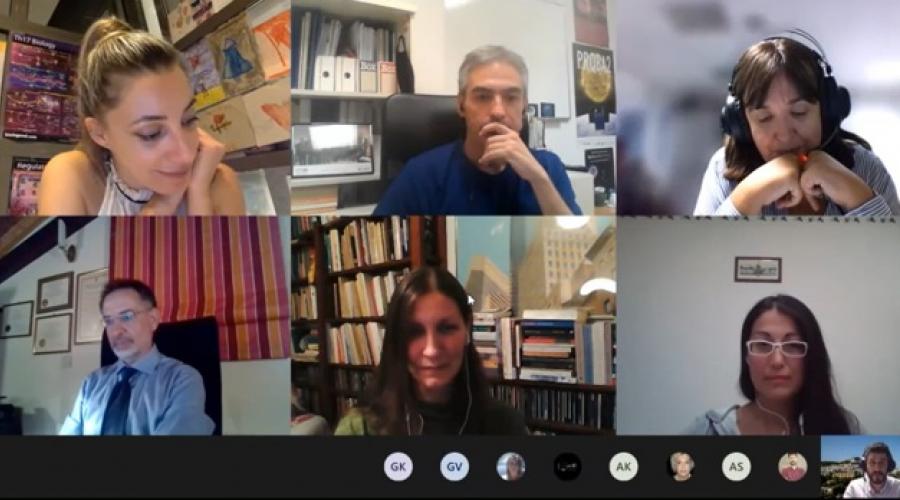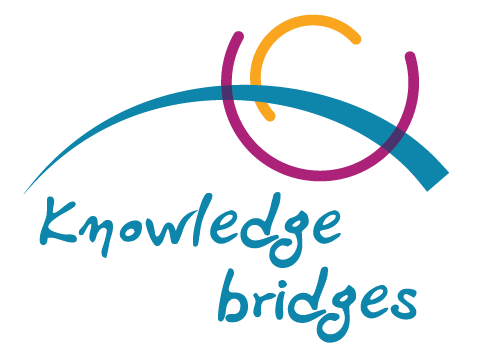4,000 participants had the opportunity to learn about funding and career opportunities at an online workshop organised by EKT.
With approximately 4,000 participants from all over Greece, the majority of EU countries, as well as from the United States, Canada, Mexico, Australia and China, the Online Workshop “Funding and career opportunities for young researchers” organised by the National Documentation and Electronic Content Centre (EKT) took place on 29 September 2020. The conference was opened by the Deputy Minister of Research and Technology Christos Dimas.
The Workshop, which focused on researchers and scientists of all levels and scientific fields, active in Greece or abroad, was attended by 24 distinguished speakers from the European Commission, the Cyprus Research and Innovation Foundation, the EL.ID.E.K.., the IKY, on General Secretariat for Research and Technology, but also beneficiaries of European and national programmes.

With approximately 4,000 participants from all over Greece, the majority of EU countries, as well as from the United States, Canada, Mexico, Australia and China, the Online Workshop “Funding and career opportunities for young researchers” organised by the National Documentation and Electronic Content Centre (EKT) took place on 29 September 2020. The conference was opened by the Deputy Minister of Research and Technology Christos Dimas.
The Workshop, which focused on researchers and scientists of all levels and scientific fields, active in Greece or abroad, was attended by 24 distinguished speakers from the European Commission, the Cyprus Research and Innovation Foundation, the EL.ID.E.K.., the IKY, on General Secretariat for Research and Technology, but also beneficiaries of European and national programmes.
Watch the video of the workshop
The speakers
Dr Evi Sachini, Director of EKT, in her opening speech, referred to EKT’s contribution to the positive results of the country’s research community. He highlighted the organisation’s supportive role towards young scientists, referring to EKT’s role as a National Contact Point for Horizon 2020. Finally, he referred to the huge challenges that the pandemic poses to researchers who have to deal with a new obstacle in their daily work. He noted that it is important for the research community to remain optimistic and find new channels of communication, taking advantage of the opportunities offered by the new digital era. One such way is the ‘Knowledge and Cooperation Bridges’ initiative implemented by EKT in cooperation with the Ministry of Development and Investment, which contributes to the diffusion of knowledge capital and the networking of young researchers and professionals around the world.
Christos Dimas, Deputy Minister of Research and Technology, then took the floor, who made the official opening welcoming EKT’s initiative to organise the Workshop. He pointed out the existing financial tools through funds of the Ministry of Education and Religious Affairs and referred to the recent agreement signed between Greece and the US on research and technology, in order to provide the appropriate institutional framework for cooperation between the two countries, in order to increase the country’s performance and become more competitive at the global level.
Then the Secretary General of Digital Governance and Simplification of Procedures, Leonidas Christopoulos, referred to the effort to solve the problems faced by the Greek researcher through digital transformation, which is a main strategy of the Ministry. He stressed that the new law on digital governance that was recently passed includes provisions, such as those concerning open data, which facilitate the work of researchers, research organisations and start-ups.
Η Agni Spilioti, Head of the Directorate for Planning and Programming of Research and Innovation Policies and Actions of the GET, referred, in turn, to the difficulties faced by the researcher but also to the effort of the State to help his work, building a new production model based on innovation and new technologies. He referred to the data collected by the ESF from research and technology, which reflects the increase in related expenditure on Research & Development (R & D). Innovation in recent years, as well as the actions of the GET that provide new opportunities for scientists.
Dr Nikolaos Mastrogiannopoulos, Chief Scientist of the Republic of Cyprus and President of the Research and Innovation Foundation (R&I Foundation), emphasized the long-standing cooperation between Greece and Cyprus in research and technology. He highlighted the high level of research in both countries and emphasised brain circulation, i.e. the mobility of knowledge and researchers, alongside efforts for brain gain.
The following then took the floor Dr Nektarios Nasikas, Director of the Hellenic Foundation for Research and Innovation (EL.ID.E.K.), and referred to the 1,000 Greek researchers who have so far benefited from the organisation, as well as the recent achievement of tax exemption from the financial support received by PhD candidates. He underlined the various actions for the support of PhD students and faculty members, as well as for the purchase of research equipment, which are underway. Finally, Fotis Athanasopoulos, Director General of IKY, highlighted the contribution of IKY in supporting young scientists and researchers during its 70 years of operation.
![]()
The baton was passed to the speakers of the first panel of the event, in order to present the Financial Opportunities. Eleni Konsta, from the EU’s Marie Skłodowska-Curie Actions (MSCA) presented the calls for the next programming period and said that more than 130,000 researchers and organisations have benefited during the programme, with 65,000 having been funded during Horizon 2020 (2014-2020). Dr Mikaela Poulimenopoulou, Scientific Projects Adviser of the Physical Sciences and Engineering Division of the European Research Council Executive Agency, presented the key points of the ERC programme and the grants it provides to researchers. He stressed that the ERC funds researchers of all nationalities, ages and disciplines. It is, however, interested in projects that are high risk and high return.
Dr Cristina Pascual, Innovation Advisor, presented EKT’s actions to support young researchers and start-ups, noting that EKT provides comprehensive support for research in Greece, from information for the interested party and support for their proposal to the organisation of events aimed at networking and the production of studies on the country’s research activity. Dimitris Marangos, coordinator of the Knowledge and Cooperation Bridges initiative at EKT and coordinator of the workshop, referred to the main objective of creating a global digital community that will network Greeks in Greece and abroad and the actions of the initiative.
Subsequently, the Georgia Cleanthous and the Katerina Karakasidou Malla, Scientific Officers at the Foundation, referred to the participation of Cypriot researchers in the European MSCA and ERC programmes, the very good position of Cyprus in international scientific publications, international collaborations in the field of research, as well as the services provided by the Foundation for the submission of research funding proposals. Concluding their presentation, they made a special reference to the 6 research centres of excellence created in Cyprus through the Team for Excellence programme.
Η Dr Katerina Kouravelou, from the Research Projects Department of EL.ID.E.K., presented the strategic objectives of the organization, which focus on the Greek scientist, as well as the open calls, informing about the participation requirements. Η Vana Sotiropoulou, by the Competitions Department of the IKY, and the Elina Mavrogiorgou, from the Erasmus+ Outcomes Promotion and Evaluation Sector of IKY, spoke about the current scholarships and the mobility programme that will succeed Erasmus+.
In the second session of the Workshop, an open discussion was held with beneficiaries of European and national actions, moderated by Dr. Sossana Kolyva and Alexandros Souroulagas, from GET< who are National Shadow Committee Representatives of the MSCA and ERC programmes, respectively.
Dr Anna Apostolidou, Social Anthropologist and postdoctoral researcher at Panteion University, was the first to speak, presenting her study and the opportunities offered to her by a scholarship she received from ELIDEK in the midst of the crisis. Dr Athanasios Papaioannou, a researcher at the National Observatory of Athens, referred to the benefits he gained thanks to the funding he received from IKY for his postdoctoral research, both on a personal and research level.
Ο Dr Dimitrios Christaras, researcher at Athens Eye Hospital and benefiting from MSCA funding, he testified his personal experience and gave useful advice to those wishing to submit a proposal, while Despina Papavramidou, a PhD candidate in Sociology from Panteion University, presented the benefits of her participation in the Erasmus+ programmes and the difficulties she faced during the pandemic in conducting her research. Then the Respondent. Timothy Papadopoulos, from the Department of Psychology of the University of Cyprus and scientific manager of the European project Neo-PRISM-C MSCA, presented the research project that was funded, the award he received and gave his personal experience on his way to the top. The speeches ended with the Dr Themida Alissafi, immunologist researcher at Institute of Medical and Biological Research of the Academy of Athens and a beneficiary of the ERC Starting Grant action, who stressed that the key to success in grants is the combination of researcher excellence and research proposal, and advised young researchers to remain committed to their vision and to be careful with their collaborations.
Throughout the event, the audience had the right to ask questions to the speakers through the “Q&A” section, which were answered at the end of each session of the Workshop.
Please complete the short feedback questionnaire. Your input is very important in order to improve future seminars!
![]()
Dinvasive polls
During the event, participants could take part in interactive polls about their scientific field, how their studies were funded in the past and scholarships they have received, as well as indicate the country from which they are attending.
It is worth mentioning that about 24% of the participants came from Humanities, 23% from ICT sciences, 17% from Natural Sciences, 16.5% from Health Sciences and Medicine and 15% from Social Sciences. 34% and 9% of participants financed their studies from family and personal savings respectively, 28% worked to be able to study, while 29% have received a scholarship. Of those who have received a scholarship, 13% and 7% did so through the ICF for PhD and postgraduate studies respectively, while 7% were funded through the Erasmus+ mobility programme.
The poll also collected demographic data on the regions from which Greeks and Cypriots attended the event. 40% were from Attica, 19% from Central Macedonia, 5% from Thessaly and 5% from Crete, 2% from Cyprus, while there were many participants from Germany, France, the United States, Sweden, Italy, Canada, Belgium, Ireland, etc.
Organised by
The event was organised by the National Documentation and Electronic Content Centre (EKT), National Contact Point for Horizon 2020, in 11 individual programmes including the Marie Skłodowska-Curie Actions (MSCA) and European Research Council (ERC) programmes, in collaboration with the General Secretariat for Research and Technology (GSRT), the Cyprus Research and Innovation Foundation and the European Commission.


